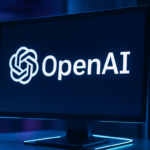In an unexpected move highlighting the intersection of politics and cryptocurrency, a stablecoin introduced by World Liberty Financial, a venture associated with Donald Trump, is making waves in the financial sector. This stablecoin, named USD1, has been chosen by an Abu Dhabi investment firm for a substantial investment in Binance, the world’s largest crypto exchange, signifying a new collaboration in the digital currency market. This development not only underlines the Trump’s family’s continued involvement in cryptocurrency initiatives but also raises questions about the implications of political figures participating in financial technologies.
USD1’s journey has seen significant milestones since its launch by World Liberty Financial earlier this year as part of its initiative to democratize financial access by eliminating traditional banking intermediaries. This move is part of a larger series of blockchain-based ventures by the Trump family, which has not been without controversy. Concerns have been voiced about conflict of interest and transparency in these dealings, echoing past sentiments surrounding family businesses being intertwined with governance.
How Does the Stablecoin Investment Affect Binance?
Abu Dhabi-based MGX decided to utilize USD1 for its $2 billion investment in Binance, emphasizing the latter’s influential role within the crypto ecosystem. World Liberty co-founder Zach Witkoff announced this transaction during a Dubai crypto conference, marking a significant endorsement for USD1. Issued on Binance’s blockchain, USD1 also illustrates the deepening connections between World Liberty and Binance, a point underscored by the significant investment flowing through it.
Could Regulatory Scrutiny Intensify?
The involvement of a foreign government-backed fund in this large-scale financial movement with USD1 has provoked strong reactions from some U.S. lawmakers, notably Democratic Senator Elizabeth Warren. Questions have been raised about potential corruption and pending legislation, such as the ‘GENIUS’ Act concerning stablecoins, portraying a politically charged debate over cryptocurrency’s place in federal governance. These developments demand further scrutiny as the stablecoin ecosystem expands.
The presence and influence of Justin Sun, the substantial investor in World Liberty Financial, further complicates the situation. His involvement as both an advisor and financial backer of the venture raises additional questions concerning collaboration and possible outcomes. Sun’s ongoing legal challenges with U.S. financial regulators add another layer to this unfolding narrative, yet his support for USD1, highlighted by integration into Tron’s blockchain, underscores the coin’s growing infrastructure.
Meanwhile, the historical context of Trump’s involvement in cryptocurrency-related initiatives reflects a sustained promise for crypto-friendly policies. However, the reach of financial tech continues evolving under regulatory scrutiny, and the implications for users and investors are more significant than ever.
USD1 has successfully carved a niche within the digital currency domain, becoming a rapidly issued stablecoin. Despite its growth, the anonymity of its major holders remains a topic of interest, revealing the opaque nature so often critiqued in cryptocurrency discussions.
The intricate interplay of politics, regulation, and cryptocurrency, as seen in the utilization of Trump’s stablecoin, manifests broader implications for stakeholders. As the crypto space attracts diverse participants, it may drive legislative and ethical conversations that shape the industry’s role across global economies. This evolving scenario warrants attention as it could redefine how monetary transactions occur in both public and private sectors.










